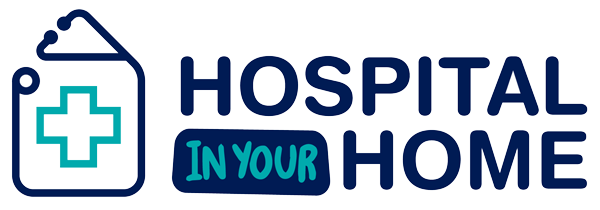
In response to the unprecedented challenges brought by the COVID-19 pandemic, the Centers for Medicare and Medicaid Services (CMS) launched the Acute Hospital Care at Home (AHCAH) initiative in November 2020. This initiative was a groundbreaking step to provide inpatient-level care in the comfort of patients’ homes, addressing the urgent need to relieve overburdened hospitals.
Recently, the CMS announced an extension of the AHCAH waiver through December 31, 2024, as part of the 2023 Consolidated Appropriations Act. This extension signifies a pivotal moment for home-based healthcare models, enabling more people to receive efficient, affordable care without overwhelming hospital capacities.
What Is the Acute Hospital Care at Home (AHCAH) Initiative?
The AHCAH initiative was initially developed to provide flexibility during the COVID-19 public health emergency. It allowed Medicare-certified hospitals to deliver inpatient-level care in patients’ homes. This was part of the broader “Hospital Without Walls” initiative, which aimed to adapt hospital care to non-traditional settings to cope with the surge of COVID-19 cases.
Under the AHCAH initiative, hospitals could apply for waivers of certain Medicare regulations. This enabled them to provide comprehensive acute care services at home while maintaining patient safety and quality standards.
Effectiveness of the AHCAH Model
Since its inception, the AHCAH initiative has demonstrated significant benefits in both patient outcomes and cost savings. Researchers tested the concept at several Medicare-managed care sites and reported a cost savings of about 30% compared with traditional inpatient care. These savings are attributed to better clinical outcomes, shorter average lengths of stay, and fewer lab and diagnostic tests.
A study by CMS, which analyzed data from 11,000 patients admitted into AHCAH programs between November 2021 and March 2023, found that patients receiving hospital-level care at home had lower mortality rates and fewer complications than those treated in hospitals. Additionally, the proportion of patients who needed to be transferred from home back to the hospital was only 7.2%, underscoring the efficacy of the home-based care model.
As the initiative continues gaining traction, projections suggest the number of hospitals adopting this model could double by 2026, provided Congress extends the necessary waivers.
Benefits and Challenges of the Home Care Model
The success of the AHCAH initiative is evident not only in improved patient outcomes but also in the reduction of healthcare costs. Hospital at home (H@H) programs help alleviate capacity issues, reduce readmission rates, and prevent healthcare-acquired infections. Moreover, the home care model ensures patients receive personalized care in a comfortable environment, enhancing their overall experience.
While implementing H@H programs requires initial investments in new information technology, staffing, and workflow systems, these efforts pave the way for sustainable, long-term improvements in healthcare delivery. With continued support and secure long-term reimbursement solutions from CMS and private payers, the future of home-based care looks promising and bright.
Leveraging Three Decades of Expertise in Home-Based Healthcare
CMS’s extension of the AHCAH waiver marks a significant milestone for the evolution of healthcare delivery in the United States. By enabling more patients to receive acute care in their homes, this initiative helps reduce hospital overcrowding and provides a cost-effective alternative that enhances patient outcomes.
Hospital in Your Home (HiYH) can leverage this extended waiver through its NovellaCare program. By providing comprehensive chronic disease management and primary care directly in patients’ homes, HiYH exemplifies the potential of home-based care models. With three decades of experience in delivering in-home care, HiYH combines proven expertise with innovative approaches to meet the healthcare needs of diverse communities.
As we move towards a future where home-based healthcare becomes more prevalent, HiYH stands ready to deliver value-based, patient-centered care that meets the evolving needs of our communities. If you want to learn more about HiYH services or know someone who could benefit from NovellaCare, contact us today.
